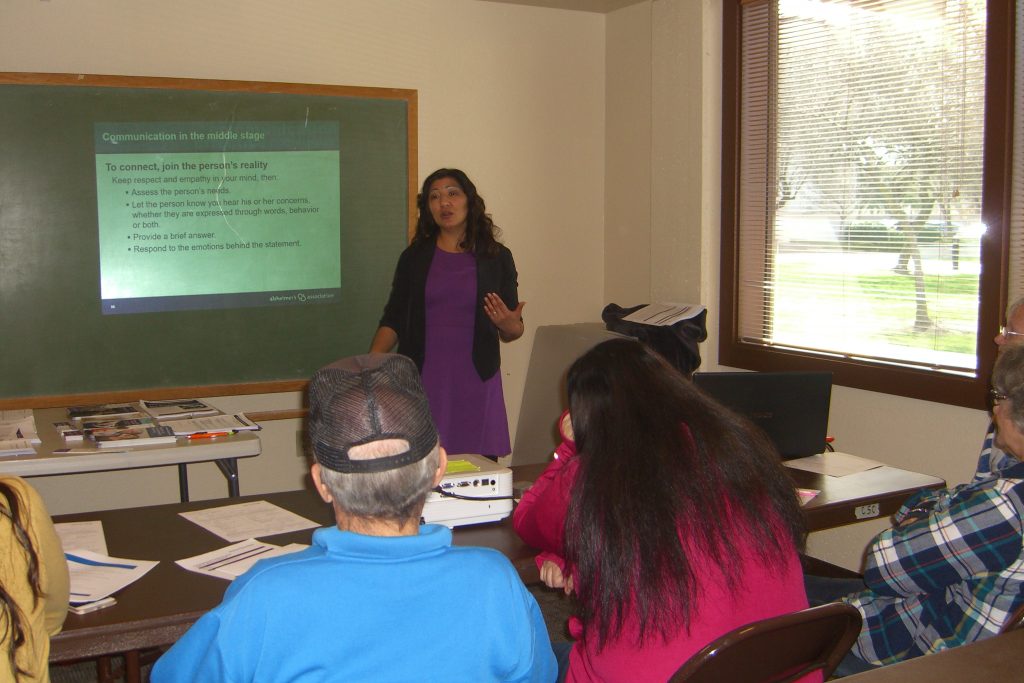
The Alzheimer’s Association held a free public workshop at Clovis Senior Center last week as part of an educational program designed to provide support to caregivers of those who suffer with Alzheimer’s disease.
Each participant of the “Effective Communication Strategies” workshop received a folder with printed helpful guidelines and information, a summation of the class, list of future events and educational as well as volunteer opportunities
“Everybody goes through the caregiving experience differently,” said Vicky Reinhold, Alzheimer’s Association Family Care Associate who spoke at the Clovis Senior Center. “Communication seems easy, but someone with Alzheimer’s isn’t able to communicate using skills their brain lacks. It’s important to focus on forming a connection and keep communication open by encouraging discussion. We can’t change the patient; we can change ourselves and how we communicate. Sometimes it’s necessary to be a detective to figure out what is meant by a certain word.”
Compassionate communication is important to establishing a bond and trust. As the patient moves through the three stages of the disease (early, middle, late), different techniques can be used. A few suggestions mentioned during the workshop were:
- Understand and accept what can and cannot be changed
- Be patient, cheerful and reassuring
- Allow plenty of time for comprehension
- Respond to feelings not facts
- Give short, one sentence explanations with simple wording
- Approach gently and with respect
- Distract the patient’s attention rather than confront or argue
Because communication includes tone of voice, facial expressions and body language, it’s possible to connect through non-verbal methods using the five senses. For example, a patient might respond to the feel or sight of something. Sounds might bring back words, as in a remembered song. Taste can trigger memories of favorite foods or beverages.
Because the care partner’s mood and actions can be sensed by those being provided care, it is important caregivers take care of themselves.
“I really appreciated the emphasis on self-care,” said Jennifer, who attended the Clovis communication program and uses her therapy dogs to draw out Alzheimer’s patients. “I take the time to make sure I’m in a good place so I can continue the care.”
The Alzheimer’s Association is the world’s leading voluntary health organization in Alzheimer’s care, support and research. Its mission is “to eliminate Alzheimer’s disease through the advancement of research; to provide and enhance care and support for all affected; and to reduce the risk of dementia through the promotion of brain health.”








